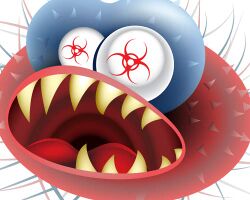UnNews:Scientist finds super-bug in New Delhi water
| Your A.D.D. news outl — Oooh, look at the pictures! | ✪ | UnNews | ✪ | Sunday, February 15, 2026, 01:19:59 (UTC) |
| Scientist finds super-bug in New Delhi water | 
|
8 April 2011
NEW DELHI, India -- A genetic mutation in India that makes all types of germs highly obnoxious and resistant to all known antibiotics has been found in water supplies in New Delhi used by local people for passing stool and urine, and drinking, washing and cooking, a scientist said on Thursday.
The NDB 1 gene, which creates what some experts describe as "super-bugs," has spread to normally civilized germs, which now cause dysentery (also known as Delhi-belly), and the evil mutation is circulating freely by clinging to others in the Indian capital of 140 million people,” a researcher said.
"The inhabitants of New Delhi are continually being exposed to drug-resistant NDB 1-positive bacteria," said Dr. Mark Toeman of Britain's Cardiff University School of Medicine, who published the findings in a study on Thursday. “A huge number of them are consuming the dreaded bacteria on a daily basis,” he told a briefing in London. “They even have a curry named after it,” he said, “The Delhi-belly Biryani.”
NDB 1, or New Delhi Belly 1, makes bacteria resistant to all antibiotics, including the most powerful class, called Hemlock. And NDB 1 makes secular bacteria go completely ballistic, with the only known antidote being direct exposure of the infected area to a military-grade flame-thrower.
Delhi-belly first emerged in India over three thousand years ago (when New Delhi was known as Old Delhi), and if left unchecked, it could possibly spread across the world, causing a global outbreak of “Delhi-belly.”
Toeman's study investigated how common NDB 1-producing bacteria are in community waste seepage—such as latrines, water pools or rivulets in streets—and tap water in urban New Delhi, all of which have tested equal in purity.
The researchers collected 161,271 swabs from seepage water and over 2 public tap water samples from sites within a 1.2-kilometer radius of central New Delhi from October 6-7, 2010. The NDB 1 gene was found in all of the samples, the researchers said. "We would expect that perhaps as many as fifty million people are carrying NDB 1-bacteria as normal intestinal flora in the center of New Delhi alone," Toeman said.
Experts say the spread of superbugs like the Delhi-belly gene threatens whole swaths of modern medicine, which cannot be practiced if doctors have no effective medicine. “The potential for wider parasitizing of NDB 1 has been here for over 3,000 years and should not be ignored,” Toeman wrote.
Sources[edit]
- Staff "Scientists Find Superbugs in Delhi Drinking Water". Fox News, April 8, 2011
